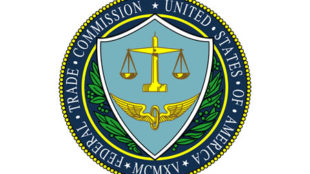
Featured
-
April 18, 2024 0
Cerebral Fined $7 Million by FTC for Privacy and Security Violations
The Federal Trade Commission (FTC) has proposed a $7.1 million penalty for the mental healthcare platform [...] -
April 18, 2024 0
RansomHub Group Threatens to Sell 4GB of Stolen Change Healthcare Data
On February 21, 2024, Change Healthcare suffered a ransomware attack that forced the company to take its [...] -
April 8, 2024 0
Is Google Workspace HIPAA Compliant?
Google Workspace is HIPAA compliant for core services with included functionality which can be used to [...]
HIPAA Regulatory Updates
OCR Revises Online Tracking Technology Guidance for HIPAA-Regulated Entities
-
March 18, 2024
-
March 13, 2024
Sen. Cassidy Published White Paper Calling for Federal Privacy Law and Updates to HIPAA
-
February 28, 2024
-
February 14, 2024
CMS: Texting Patient Information and Patient Orders is Now Permitted
HIPAA Breaches and Fines
Cerebral Fined $7 Million by FTC for Privacy and Security Violations
-
April 18, 2024
RansomHub Group Threatens to Sell 4GB of Stolen Change Healthcare Data
-
April 2, 2024
-
April 1, 2024
OCR Settles HIPAA Right of Access Investigation with Phoenix Healthcare
-
March 14, 2024
Healthcare Cybersecurity
Healthcare is the Critical Infrastructure Sector Most Targeted by Ransomware Groups
-
January 26, 2024
HHS Releases Cybersecurity Performance Goals for the Healthcare and Public Health Sector
-
November 21, 2023
-
November 20, 2023
New York Proposes Stricter Cybersecurity Regulations for Hospitals
-
September 8, 2023
Feds Warn of Active Exploitation of Zoho and Fortinet Vulnerabilities
HIPAA Advice Articles
Is Google Workspace HIPAA Compliant?
-
April 5, 2024
-
March 28, 2024
-
March 25, 2024
-
March 20, 2024
Useful Articles
Search Site
Copyright © 2007-2024 The HIPAA Guide Site Map Privacy Policy About The HIPAA Guide Terms and Conditions Accessibility Statement




















